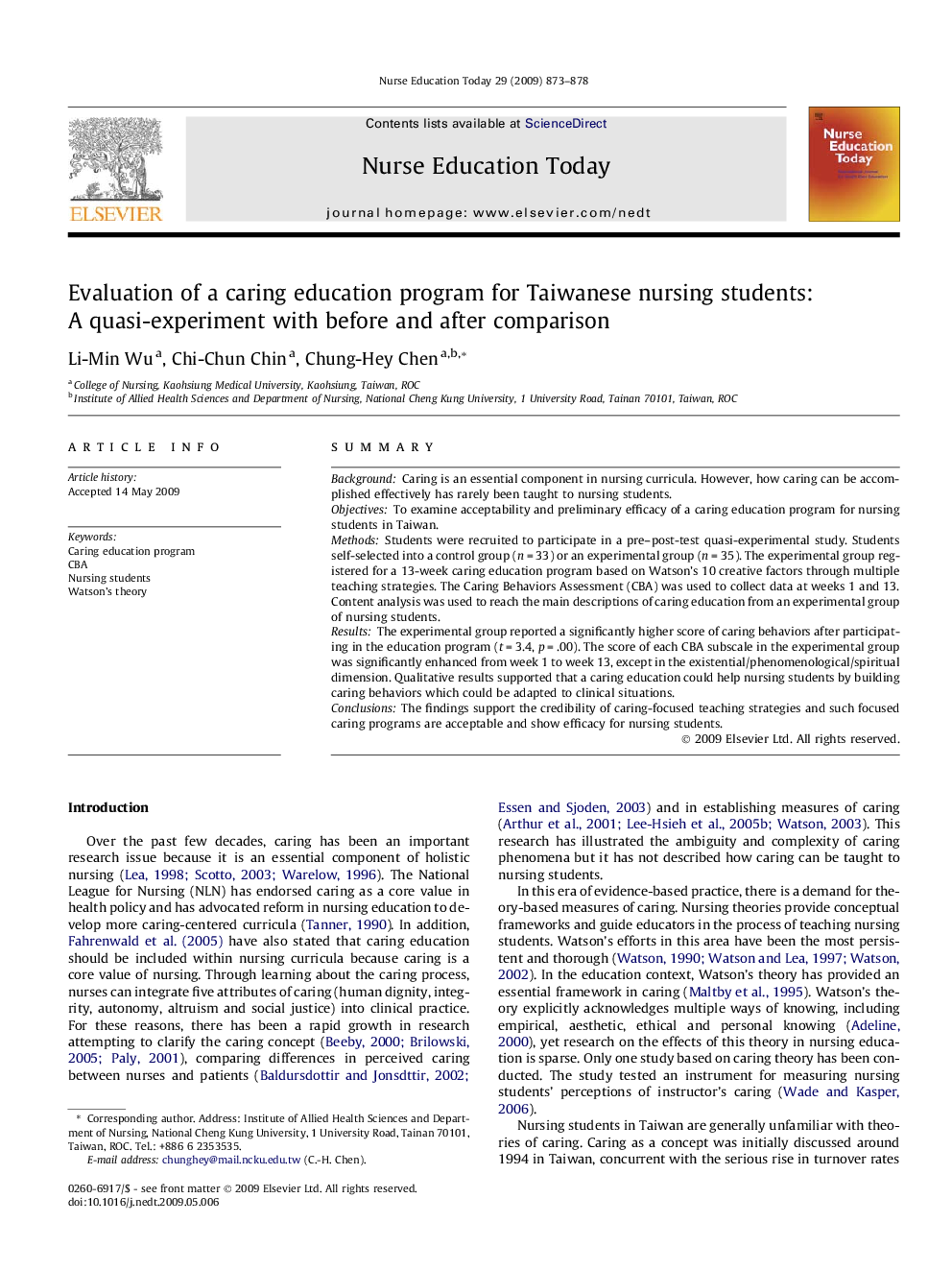| Article ID | Journal | Published Year | Pages | File Type |
|---|---|---|---|---|
| 369522 | Nurse Education Today | 2009 | 6 Pages |
SummaryBackgroundCaring is an essential component in nursing curricula. However, how caring can be accomplished effectively has rarely been taught to nursing students.ObjectivesTo examine acceptability and preliminary efficacy of a caring education program for nursing students in Taiwan.MethodsStudents were recruited to participate in a pre–post-test quasi-experimental study. Students self-selected into a control group (n = 33) or an experimental group (n = 35). The experimental group registered for a 13-week caring education program based on Watson’s 10 creative factors through multiple teaching strategies. The Caring Behaviors Assessment (CBA) was used to collect data at weeks 1 and 13. Content analysis was used to reach the main descriptions of caring education from an experimental group of nursing students.ResultsThe experimental group reported a significantly higher score of caring behaviors after participating in the education program (t = 3.4, p = .00). The score of each CBA subscale in the experimental group was significantly enhanced from week 1 to week 13, except in the existential/phenomenological/spiritual dimension. Qualitative results supported that a caring education could help nursing students by building caring behaviors which could be adapted to clinical situations.ConclusionsThe findings support the credibility of caring-focused teaching strategies and such focused caring programs are acceptable and show efficacy for nursing students.
